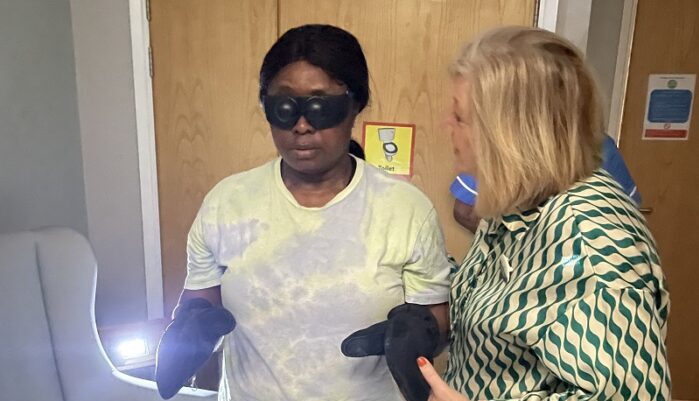OPINION: Give with one hand, take with the other

Professor Martin Green, chief executive of Care England, assesses the effect of government changes to Health and Care Worker visa
The UK government recently changed the Health and Care Worker visa, which has raised concerns and sparked debates about its impact on the care sector. The changes to the Health and Care Worker visa have significant implications for the recruitment and retention of care workers in the UK and for the overall functioning of the care sector.
Social care is amid a workforce crisis and we have more than 152,000 vacancies across the sector. We also suffer from a 40% turnover rate. This is having a significant impact on people’s ability to deliver care and to maintain quality and consistency. In many areas, care providers have reduced the number of people they support specifically because they cannot get staff in either front line or specialist roles, such as nursing. This nursing shortage is challenging and over the years we have seen many nursing homes re-register as care homes purely because they could not get the appropriate staff. The roots of this workforce challenge lie in several areas, but the combination of Brexit and a global pandemic has put severe pressure on the social care workforce and destabilised many services. Agency staff are also costly, but because of regulation, many care providers are forced to pay for agency staff to deliver the required safety and quality of care.
One of the fundamental changes introduced by the government is removing the right for care workers to bring in dependants. This will significantly change the number of people available and can also impact people’s ability to settle into their new roles. When the government put care workers on the shortage occupation list, we felt this was a real opportunity to reach out to skilled people from across the globe and encourage them to work in the UK social care system. Like many governments, after a while, they tend to tinker with the system as it becomes more familiar, and this was certainly the case with this government and the shortage occupation list. Care workers are required to have an agreed salary, which is often more than people who enter the profession from the UK. However, in making changes, the government still allowed care workers to have a lower entry point in terms of salary than many other professions. This was greatly welcomed because it would have been completely unsustainable if we had been required to pay a higher level. We would not have been able to recruit overseas staff because of the impact this would have had on our budgets and differentials.
However, the government gave with one hand and took away with the other by instituting new criteria that removed the right of care workers to bring in dependants, yet they left this right in place for people who entered to work in the NHS. The government learned no lessons from the pandemic. During the pandemic, they introduced mandatory vaccinations but only imposed them on the care sector, not the NHS. This meant that we lost 30,000 staff who did not want to be vaccinated, many of whom went into the NHS. There is no justifiable reason why you would introduce mandatory vaccination in social care but not in the NHS. In truth, the difference in the way in which the NHS is treated compared to social care, I believe, lies in the fact that the NHS is accountable to politicians and they will not do anything that might cause a problem in this organisation because, ultimately, they hold the line of accountability. This is different in the care sector. Politicians are quite willing to bring in policies that differentiate health and care while at the same time talking about integration and spending billions of pounds of taxpayers’ money on changing the structure of clinical commissioning groups to integrated care systems, pretending this will deliver integration when much of their strategic policy position is completely at variance with that objective.
Furthermore, the changes to the Health and Care Worker visa have also impacted the rights and benefits available to care workers once they are in the UK. The government has not only introduced restrictions on the ability of care workers to bring their family members to the UK but has also introduced limitations on their access to public funds and benefits. These restrictions have raised concerns about the welfare and wellbeing of care workers who may be separated from their families and face financial challenges while working in the UK.
Overall, the UK government’s changes to the Health and Care Worker visa have been widely criticised for their potential negative impact on the care sector. The government has created barriers that may hinder the recruitment and retention of care workers from overseas by introducing minimum salary requirements and imposing restrictions on rights and benefits. This could exacerbate staffing shortages in the care sector, impact the quality of care provided to vulnerable individuals, and ultimately undermine the sustainability of the care sector in the UK. However, the worst bit in all these changes is the constant separation between health and social care staff. Anybody who works in the NHS is treated like a first-class citizen, and anybody in social care is deemed not worthy of the same status and respect. We will only have integration once we have more aligned terms and conditions and we also need parity of esteem. The people working in social care are vital and the people they support have many complex needs. Care workers need to be as skilled and respected in the same way as anyone who works in the health system.



